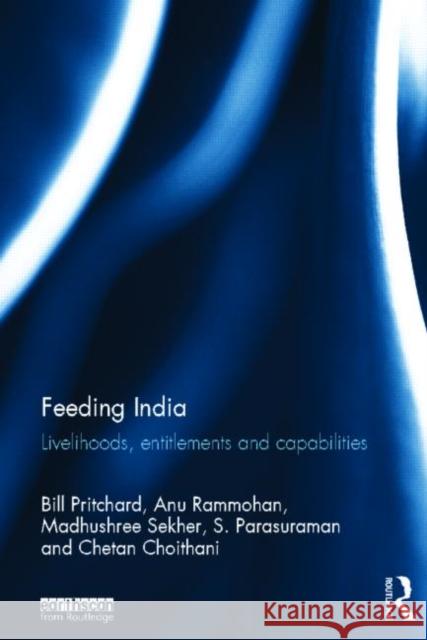Feeding India: Livelihoods, Entitlements and Capabilities » książka
Feeding India: Livelihoods, Entitlements and Capabilities
ISBN-13: 9780415529662 / Angielski / Twarda / 2015 / 194 str.
Feeding India: Livelihoods, Entitlements and Capabilities
ISBN-13: 9780415529662 / Angielski / Twarda / 2015 / 194 str.
(netto: 718,58 VAT: 5%)
Najniższa cena z 30 dni: 654,86
ok. 16-18 dni roboczych.
Darmowa dostawa!
Food security is one of the twenty-first century s key global challenges, and lessons learned from India have particular significance worldwide. Not only does India account for approximately one quarter of the world s under-nourished persons, it also provides a worrying case of how rapid economic growth may not provide an assumed panacea to food security.
This book takes on this challenge. It explains how India s chronic food security problem is a function of a distinctive interaction of economic, political and environmental processes. It contends that under-nutrition and hunger are lagging components of human development in India precisely because the interfaces between these aspects of the food security problem have not been adequately understood in policy-making communities. Only through an integrative approach spanning the social and environmental sciences, are the fuller dimensions of this problem revealed. A well-rounded appreciation of the problem is required, informed by the FAO s conception of food security as encompassing availability (production), access (distribution) and utilisation (nutritional content), as well as by Amartya Sen s notions of entitlements and capabilities.











